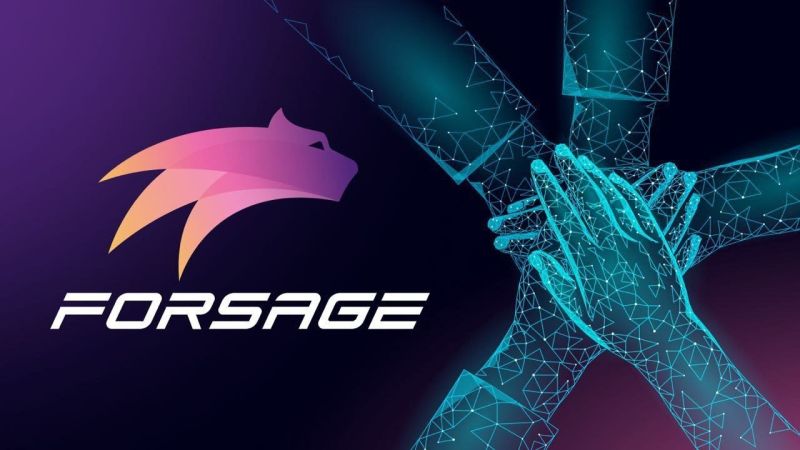Decentralized platforms and cryptocurrencies have experienced exponential growth in recent years, attracting both enthusiasts and critics alike. Forsage, a blockchain-based platform, has made headlines for its unique approach to earning Ethereum (ETH) through matrix structures and referral systems. However, with innovation comes scrutiny, particularly in an industry rife with security concerns and scams. In an effort to address these issues, Forsage has implemented a Forsage ID check. In this article, we will delve into the Forsage ID check, its objectives, how it functions, and its implications for users.
Understanding Forsage
Forsage stands out as a pioneering decentralized matrix project built on the Ethereum blockchain. The platform operates through smart contracts, which are self-executing, immutable agreements written in code. It offers participants the opportunity to earn Ethereum by recruiting others to join the platform, forming a matrix-like structure. Rewards are distributed automatically via the Ethereum blockchain, ensuring transparency and eliminating the need for intermediaries.
The Forsage ID Check: Purpose and Implementation
The Forsage ID check is an integral part of Forsage’s strategy to bolster security, trust, and transparency. Its primary goals include:
- Identity Verification: To verify the identity of participants, Forsage requests users to complete a registration process. This involves providing personal details, such as their name, email address, and contact information. A unique Forsage ID is generated for each user during this process.
- Know Your Customer (KYC): Following registration, participants are required to undergo a KYC process. KYC is an industry-standard procedure aimed at verifying the identities of customers to prevent fraudulent activities, money laundering, and other illicit actions. Users typically need to upload identification documents like passports or driver’s licenses as part of KYC.
- Verification: Forsage’s administrators review the KYC submissions to confirm the authenticity of users’ identities. This verification process plays a crucial role in maintaining the platform’s integrity and ensuring that participants adhere to legal and regulatory guidelines.
Implications of the Forsage ID Check
The introduction of the Forsage ID check carries significant implications for both the platform and its users:
- Enhanced Security: The Forsage ID check reinforces the platform’s security by minimizing the risk of fraudulent activities and identity theft. This safeguards users and the platform itself from potential scams and malicious actors.
- Legal Compliance: Compliance with KYC requirements is often a legal necessity in many jurisdictions. Forsage’s commitment to following these regulations demonstrates its dedication to operating within the bounds of the law.
- Trust and Credibility: By implementing identity verification and adhering to regulatory standards, Forsage aims to cultivate trust and credibility within its user community. This, in turn, may attract more users who are hesitant to engage in decentralized platforms due to concerns about legitimacy.
- Risk Mitigation: Identity verification serves as a risk mitigation measure for Forsage. It helps the platform mitigate risks associated with illegal activities that could lead to legal repercussions for both the platform and its users.
Challenges and Concerns
Despite its advantages, the Forsage ID check also raises some concerns:
- Privacy Concerns: Users may express reservations about sharing personal information and identification documents due to privacy concerns. Ensuring the security and confidentiality of this sensitive data is of utmost importance.
- Centralization Tensions: Decentralized platforms often strive to minimize centralization, yet the implementation of KYC procedures can be perceived as a form of centralization. This inherent tension between decentralization and regulatory compliance is a challenge frequently encountered by blockchain-based projects.
- User Experience: The KYC process can be complex and time-consuming, potentially discouraging user participation. Striking a balance between robust security measures and user-friendliness remains an ongoing challenge for decentralized platforms.
Conclusion
The Forsage ID check represents a significant stride toward fortifying security and transparency on the platform. Through the introduction of KYC procedures and identity verification, Forsage aims to instill trust within its user base while adhering to legal requirements. However, these measures also bring to the forefront challenges related to user privacy and the delicate equilibrium between decentralization and regulatory compliance.
As the blockchain and cryptocurrency industry continues its evolution, finding the right balance between these competing interests remains a pivotal consideration for platforms like Forsage. Users should critically evaluate the implications of the Forsage ID check, taking into account their individual priorities and risk tolerance before participating in the platform. Ultimately, it is a dynamic landscape where innovation and security must harmonize to build a robust and reliable decentralized ecosystem.

